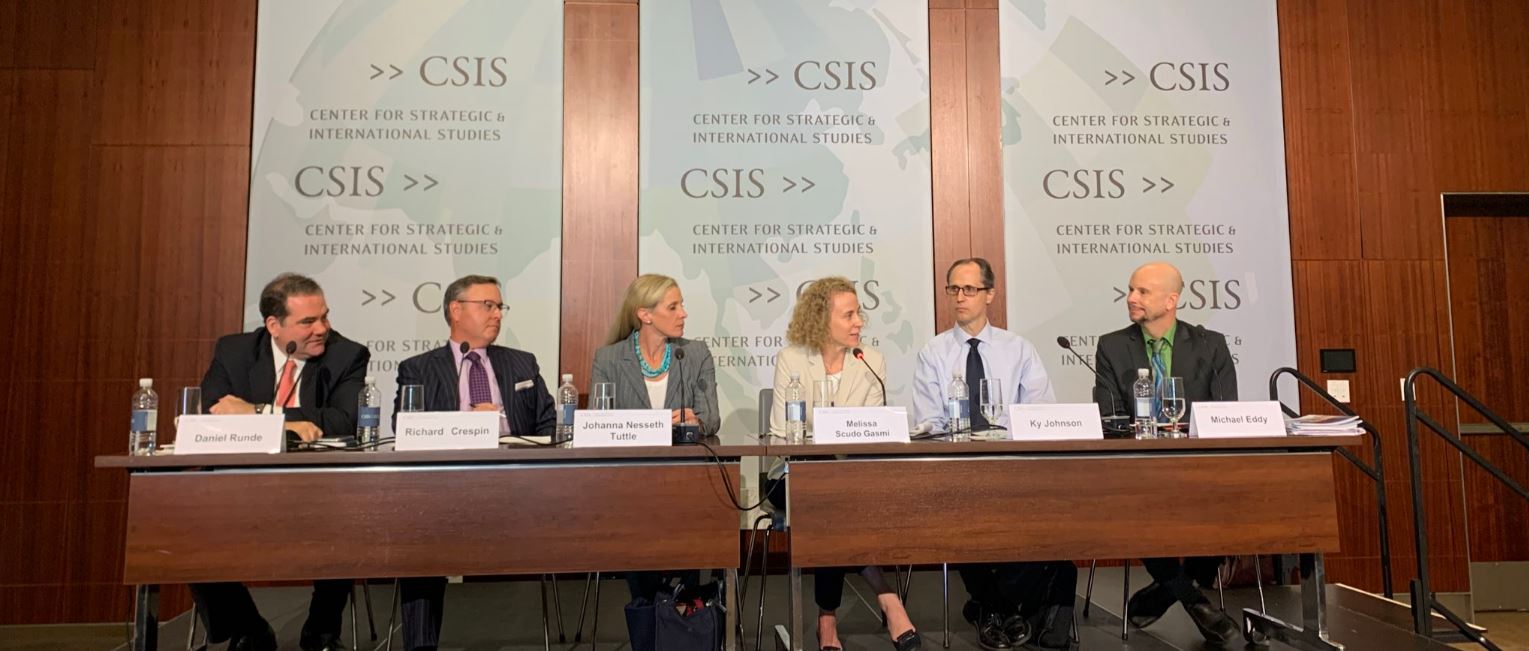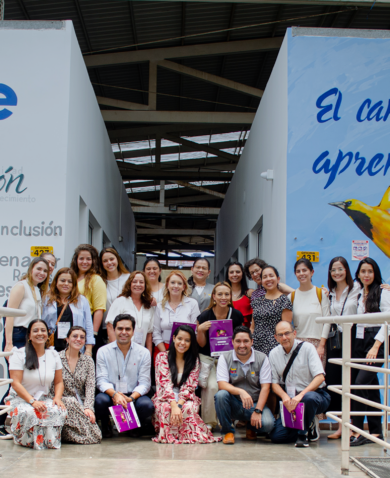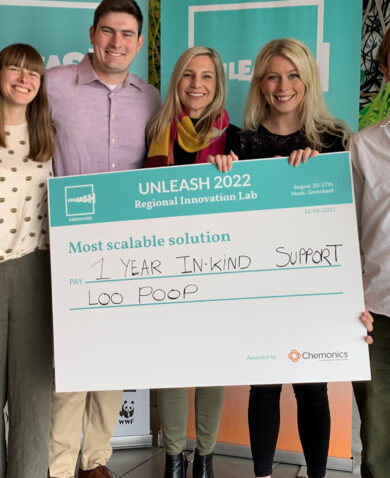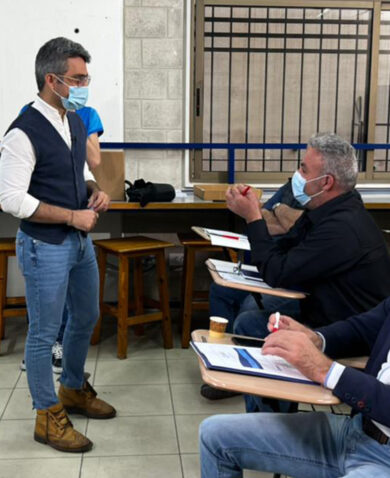
Chemonics News
News: Chemonics’ Senior Vice President Melissa Scudo Gasmi Discusses Private Sector Engagement at CSIS Event
October 10, 2019 | 3 Minute ReadSenior Vice President Melissa Scudo Gasmi represented Chemonics at a Center for International and Strategic Studies panel focusing on the role of the private sector in development.
On Monday, October 7, the Center for Strategic and International Studies (CSIS) hosted a panel discussion on private sector engagement, titled More than a Wallet: The Role of the Private Sector in Development. The panel explored the role of the private sector in development. The event featured Chemonics’ Middle East and North Africa Senior Vice President Melissa Scudo Gasmi, joined by four other panelists — Michael Eddy (Private Sector Engagement Coordinator, USAID), Johanna Nesseth Tuttle (Executive Director, Niger Delta Partnerships Initiative and Co-Chair of USAID’s Advisory Committee On Voluntary Foreign Aid Subcommittee on Private Sector Engagement), Richard Crespin (Chief Executive Officer, CollaborateUp), and Ky Johnson (Senior Advisor, mClinica). CSIS Senior Vice President Daniel Runde moderated the discussion.

The private sector is inextricably tied to driving and sustaining development outcomes. This is especially true because the private sector supplies nine out of ten jobs across many sectors in developing countries and because, as of 2016, private capital accounted for 84 percent of financial flows to and within these countries — a 55 percent increase since the 1960s.
With this transformation in mind, the panelists discussed market-based collaboration with the private sector to drive development efforts beyond job creation and financing programs. They noted that the development community and the private sector are concerned about the same development challenges and can jointly develop long-term solutions that draw on the private sector’s technical innovations and expertise. Ms. Gasmi shared her insights, emphasizing that addressing shared interests such as having a skilled workforce, having healthy citizens, and reducing pollution creates business opportunities for the private sector. She also noted that implementers can work with donors and private sector stakeholders to facilitate joint identification of challenges and needs and can co-create and jointly implement scalable and sustainable solutions that address both business and societal needs.
The panelists lauded USAID’s Private Sector Engagement Policy and the contribution of the private sector to countries’ progress on the Journey to Self-Reliance and discussed the importance of facilitating multi-stakeholder interactions between donors and the private sector.
“What’s important in this process is that the private sector is engaged from the very beginning in terms of the idea generation and that there is a discussion on what is a company’s interest and what is in the community’s interest,” said Ms. Gasmi.
Ms. Gasmi shared insight from Chemonics’ work with USAID in Building Economic Sustainability through Tourism in Jordan, where Chemonics works with TripAdvisor “to advance tourism outcomes, increase the numbers of arrivals, and to diversify the types of tourism” through a partnership between the Jordan Tourism Board, TripAdvisor, and local tour operators and business stakeholders, facilitated by USAID and Chemonics. This multi-stakeholder approach “had a direct impact on reaching different audiences for tourism promotion in Jordan,” Ms. Gasmi added.
As a result, USAID and Chemonics are replicating this approach in the Lebanon Enterprise Development Project by engaging TripAdvisor to conduct a bootcamp with local firms to improve their digital marketing skills so that they can attract a wider pool of tourists to visit Lebanon.
Panelists concurred that market-based approaches are crucial for development work and that the private sector brings valuable skills, knowledge, and innovations to development challenges. By engaging with the private sector, the development community can tackle complex development issues more effectively and achieve greater and more sustainable impact.
The CSIS panel reflects a growing interest among donors, development practitioners, and policymakers to engage with the private sector since USAID announced its new Private Sector Engagement Policy in April 2019.
Watch the recorded webcast of the CSIS event here.
Melissa Scudo Gasmi is the senior vice president of Chemonics’ Middle East and North Africa region. She joined Chemonics in 2007 and has 20 years of experience managing complex international development programs both overseas and in Chemonics’ home office.





















